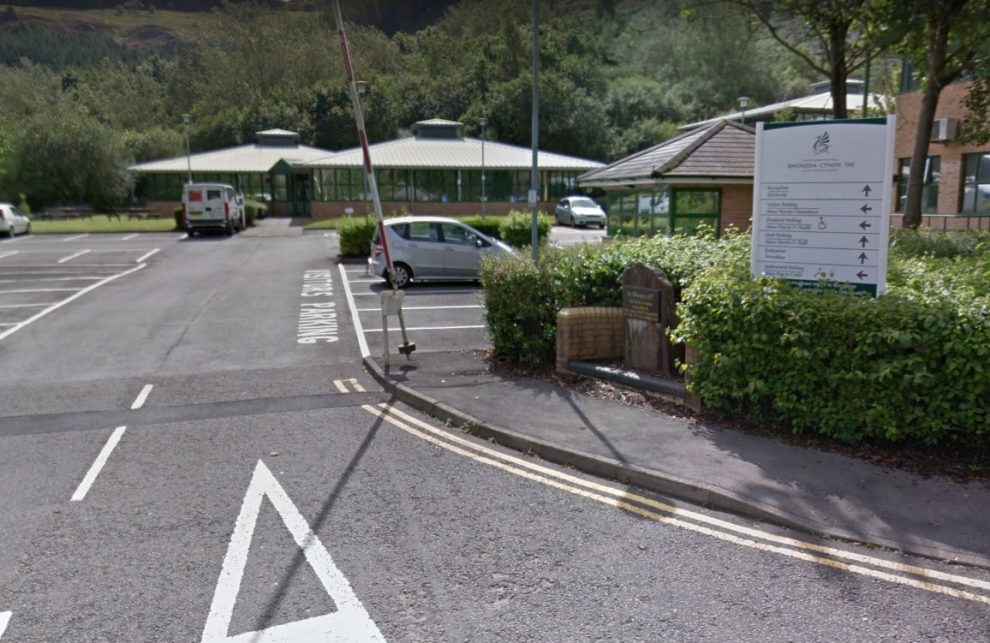BLACK bags and bins will now be collected every three weeks instead of every two in Rhondda Cynon Taf.
The proposals approved by the council’s cabinet on Monday, January 23, are for the collection of residual household waste (black bins and bags) on a three-weekly basis for all domestic waste collections and the trial of the use of reusable recycling sacks for the collection of dry mixed recycling.
The proposals include volume controls including a maximum of three black bags per household for those properties with existing black bag waste collections.
The “no side waste” rule continues for those households with large 240 Litre (L) wheelie bin collections but one bag of side waste, no larger than 70L, is allowed for the standard 120L bins.
The estimated financial saving from the move to three weekly collections is around £800,000 for a full year.
The report said that the proposals could lead to a 20% increase in food waste recycling which would result in an additional food waste yield per household generating around 2,600 tonnes a year in additional recycling and save up to £350,000 in a full year.
The report said that the council thinks that the proposals would lead to a reduction in its carbon footpirnt and a reduction in refuse collection rounds, which is likely to have an impact on the current staffing model of waste services but that any reductions to the staffing model will be managed through the “agreed employment procedures and a realignment of resources, including agency staff levels.”
Turning to the reusable recycling sacks, the report said that records show that the council purchased 30.2 million single use bags during 2021/22, at a cost of £877,000, a £867,000 full year estimated cost for 2022/23.
In November 2021 the council handed out reusable sacks for green waste collection as a replacement for the single use plastic bags and it also led to saving on the use of 3 million single-use recycling bags.
The council said that a switch to reusable bags for the collection of dry mixed recycling would result in an even higher number of single-use bags no longer being required.
The report added that trials in designated areas across all three areas of RCT, starting later in 2023 and lasting for 6 months will “allow the service to assess the operational impact, recycling volumes and quality of recycling produced” as well as more feedback from the public.
To move to re-usable sacks, the estimated one-off cost of purchasing of reusable sacks is said to be around £842,000 and an ongoing cost of approximately £220,000 a year for replacement sacks.
The estimated saving, (assuming the one-off purchase costs are funded), is £647,000.
The council report said that moving to three-weekly collections, was crucial if the council was going to achieve the Welsh Government recycling target of 70% by 2025 and move towards the RCT 80% target. Recent analysis of the council’s recycling rate showed that it was currently at 67.48%.
The report also said that investigation and analysis undertaken by the waste services section suggested that an increase in the council’s recycling rate could be achieved by adopting a new approach to collections of residual household waste.
In moving toward three-weekly collections, with a strict volume control of a maximum of three black bags, (or no side waste for households with large wheelie bin collections), then there was potential to achieve the twin benefits of a reduction in general waste, as well as financial savings, the report said.
It said: “Whilst there is less evidence that extending to three, or indeed four-weekly waste collections in isolation has a strong influence on recycling rates, it is clear that they do offer the potential for financial savings.
It added that organic waste also had a high carbon footprint and as nearly 39% of the black bag waste sampled as part of the council’s investigations was organic waste, the proposed change in policy would have “positive implications” towards the council’s net zero climate change commitments.
The three-weekly refuse collections are set to come in from June, 2023 and a pilot of reusable recycling sacks will come in later in the year.
The report said: “Increasing engagement with residents to maximise their rates of recycling will be imperative to improving the council’s recycling performance and avoiding potential fines for missing Welsh Government recycling targets of 70% recycling for 2024/25.
“Recycling rates will be monitored and evaluated to inform the ongoing strategy for waste and recycling collections across RCTCBC as we strive to achieve the council’s recycling target of 80% by 2025 as part of our commitment to the Tackling Climate Change Strategy.”
The report said that since the original proposals were presented to cabinet, several councils had confirmed that they were currently exploring options to reduce the frequency of black bin/bag waste collections, in order to reduce costs in light of continued exceptional budget pressures and in order to meet the Welsh Government 70% recycling targets for 2024/25 and avoid the risk of fines.
Councillor Ann Crimmings, cabinet member for environment and leisure, said that it’s important that the council achieves the recycling target of 70% or there will be heavy financial penalties.
She said the proposals will “not only see an increase in recycling figures but also help with reducing our carbon footprint.”
Cllr Crimmings said she was pleased to see that the issue of the 120L bins has been addressed and highlighted that the proposals would save almost £1.5m.
She said: “Clear communication is paramount and engagement with our residents will be key to the success and smooth implementation of any changes.”
Cllr Crimmings said the reusable sacks lend themselves better to some areas better than others hence the need for a trial.
The leader of the council Councillor Andrew Morgan said it is important that officers work with families and they’d ask people to contact the council if they’re having difficulties adding that there is the potential for an extra allowance for large families and those with pets.
Cllr Morgan said they need to work with housing providers on collection points and that doing a trial on reusable recycling sacks is the right thing to do.
He said that the financial savings of nearly £1.5m is the equivalent of closing three sports centres and that many other councils are considering these changes to waste services.
He said it’s important they learn from councils that are already doing it and that they work with residents to try to find solutions to any issues.
Councillor Maureen Webber, deputy leader of the council, said they have to improve recycling and that this will be about communication and education.
She said it’s not the ideal position to be in but “it’s no fault of our own that we have to look at these measures.”
She said £900,000 on plastic bags is a considerable amount of money.
Councillor Christina Leyshon, cabinet member for climate change and corporate services, said she agrees that these proposals will reduce the council’s carbon footprint and the move to reusable recycling sacks instead of plastic can only benefit the environment.



















